Environmental Studies Students, Faculty Find New Ways to Explore the Berkshires
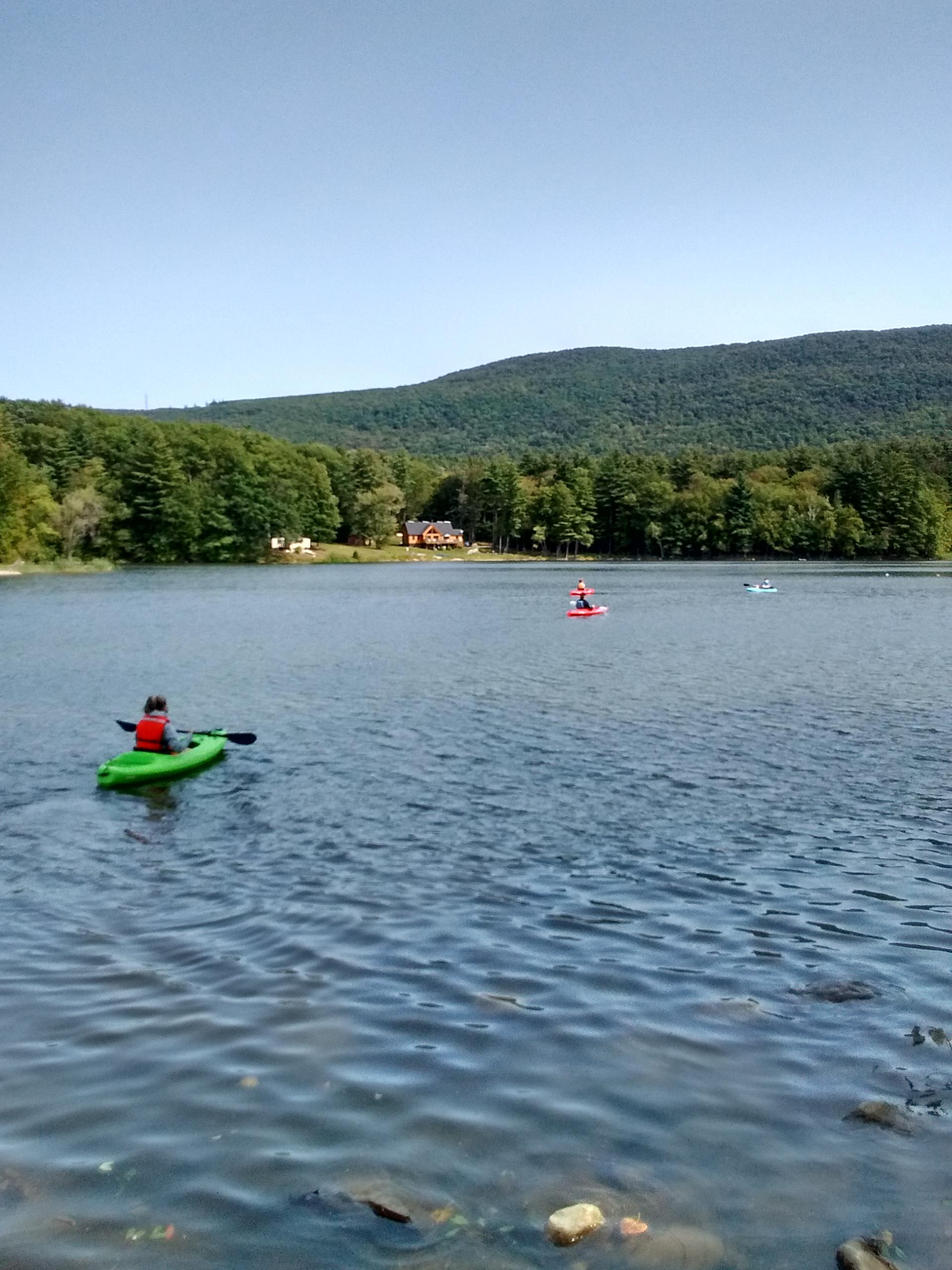
Envi 1 - MCLA students kayak at Windsor Lake in North Adams.
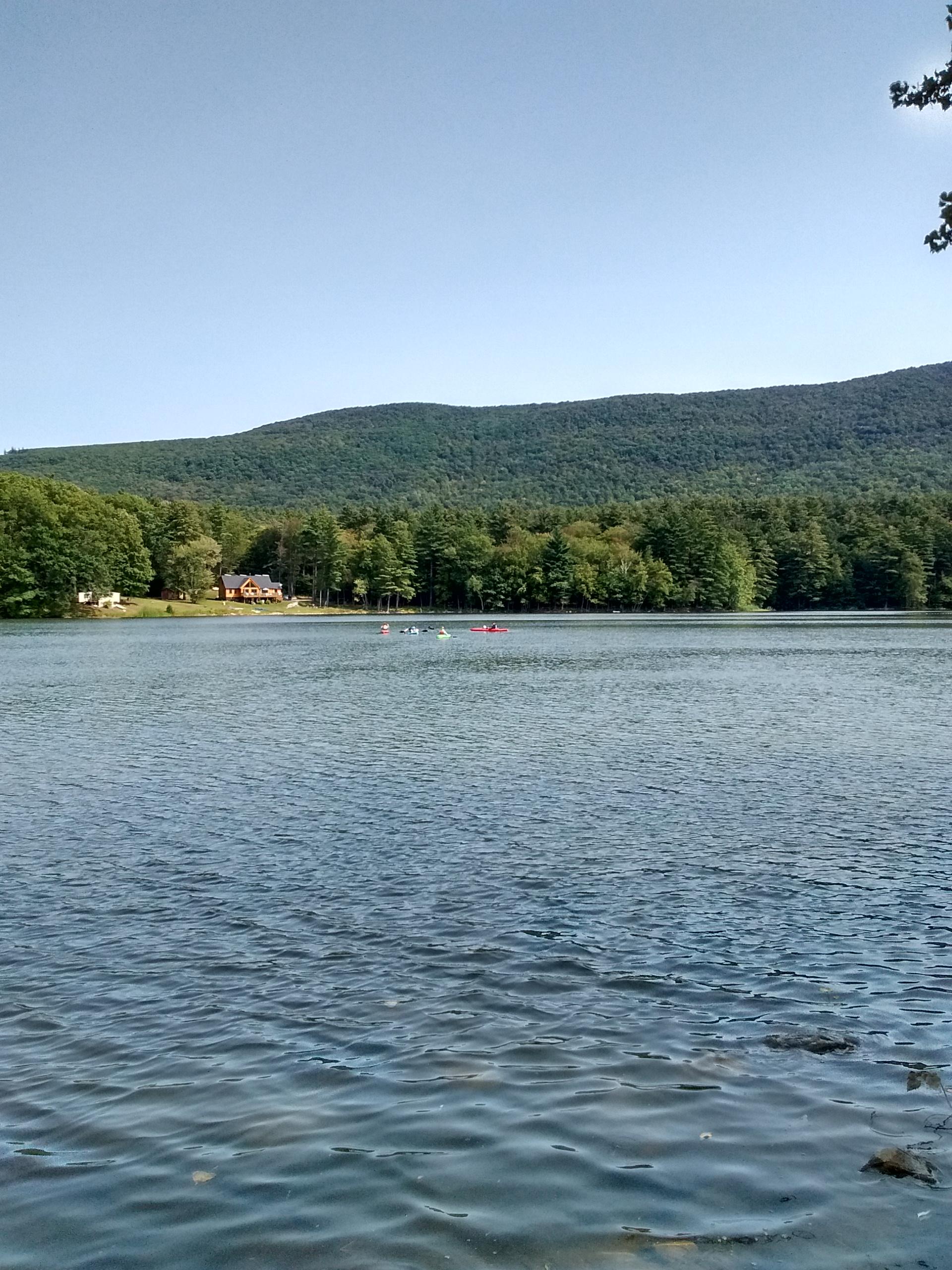
Envi 2 - MCLA students kayak at Windsor Lake in North Adams.
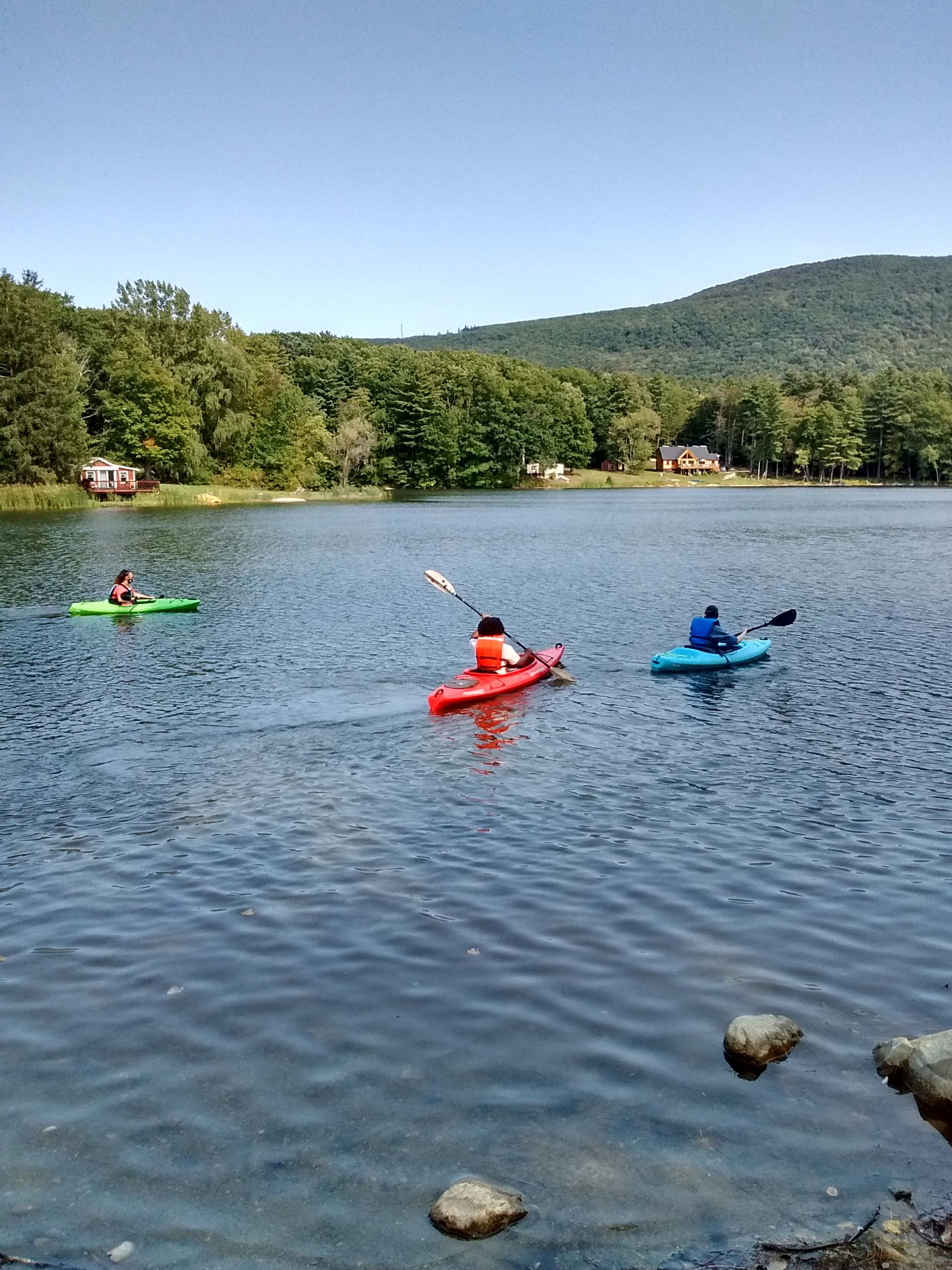
Envi 3 - MCLA students kayak at Windsor Lake in North Adams.
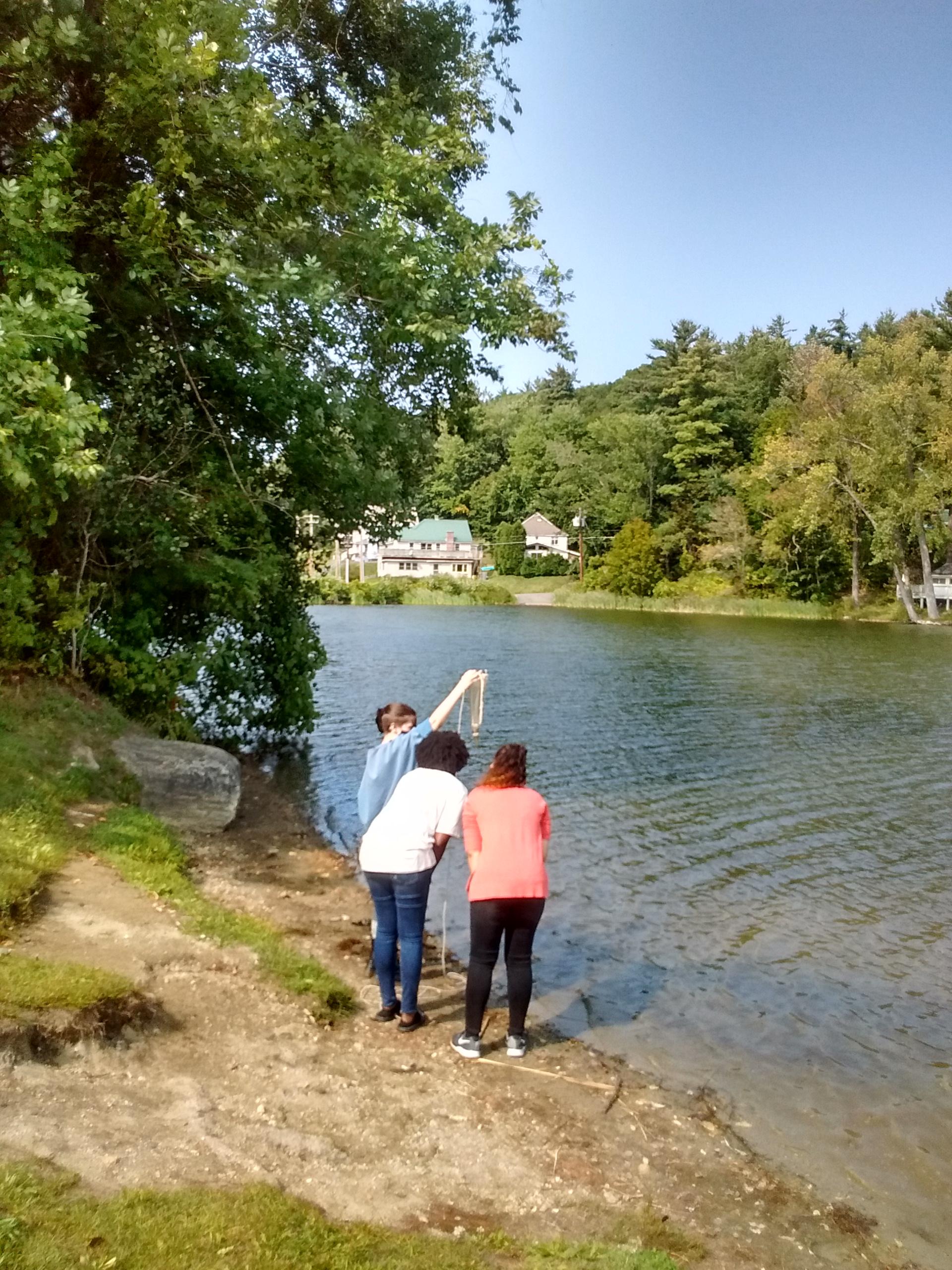
Envi 4 - MCLA students kayak at Windsor Lake in North Adams.
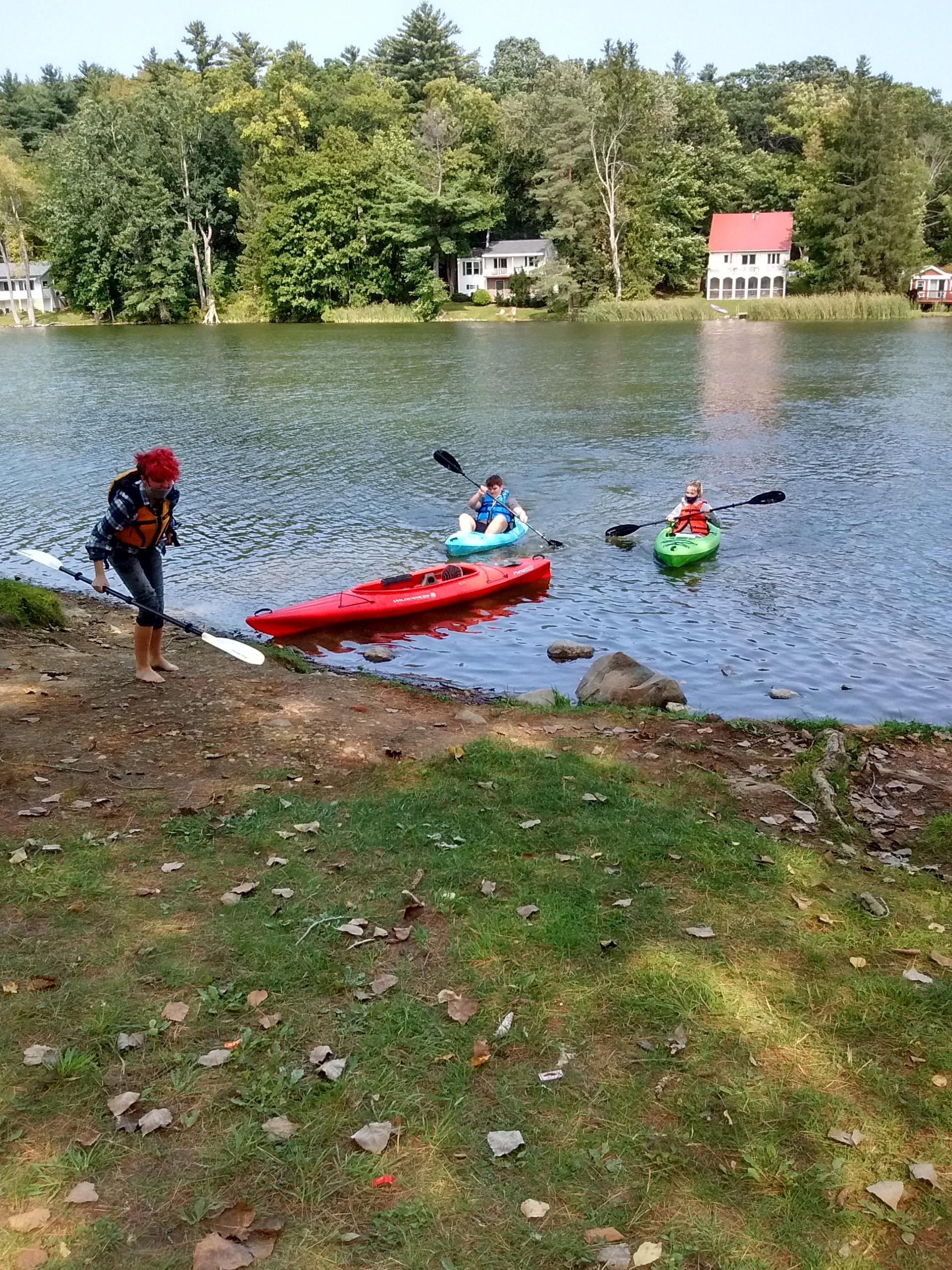
Envi 5 - MCLA students kayak at Windsor Lake in North Adams.
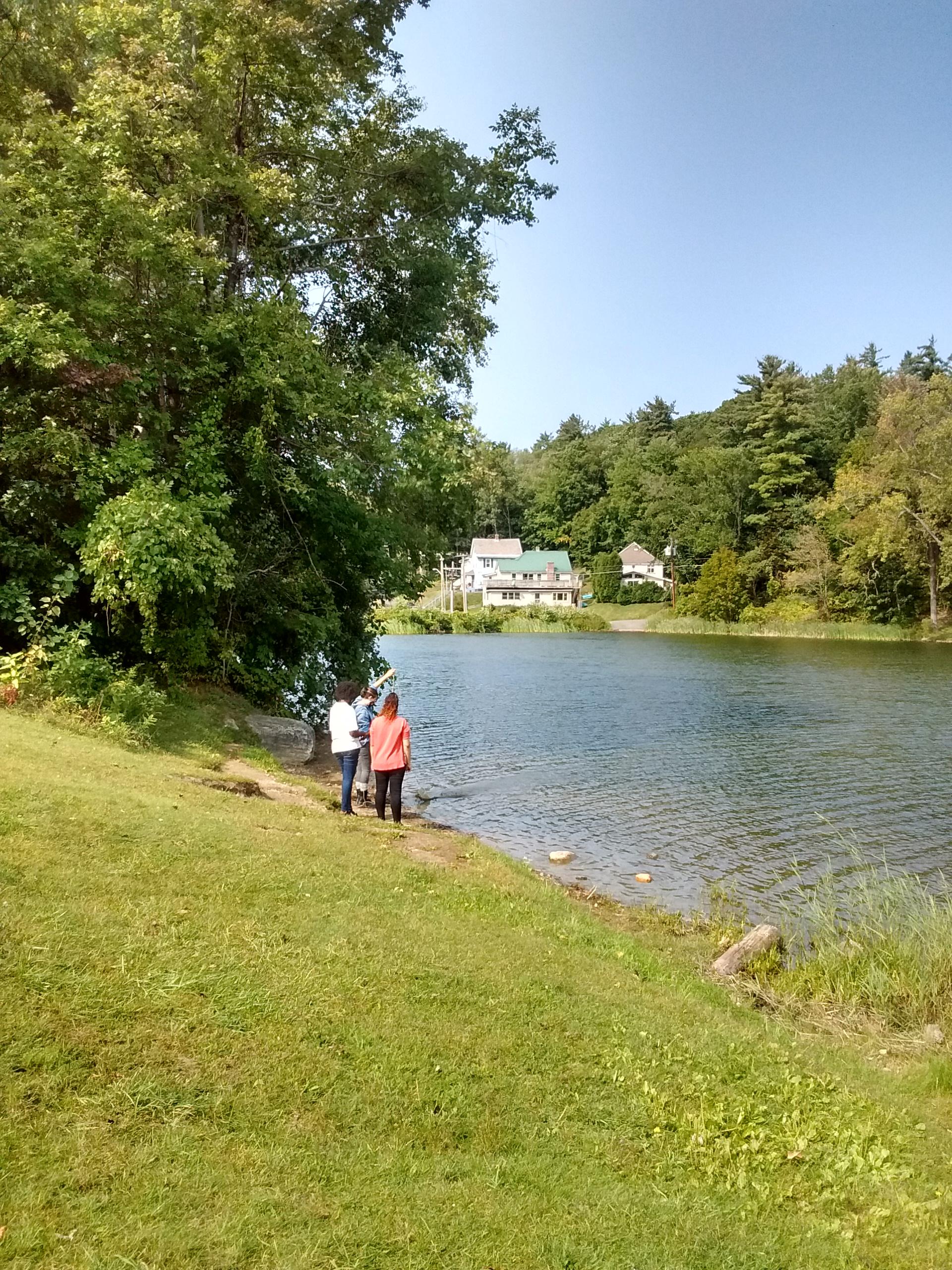
Envi 6 - MCLA students kayak at Windsor Lake in North Adams.
MCLA’s Environmental Studies students are venturing outside more than ever this year.
A new partnership with the College’s Environmental Studies Department and the City of North Adams has allowed the department to reserve the pavilion at Windsor Lake, just up the road from campus, for multiple Environmental Studies classes. Now, students and their professors walk up to the public park for classes, taking samples, using the city’s trail network to access the MCLA Forest, which abuts the city property, and even conducting lab sessions, microscopes and all.
“We’re in a time when everyone is concerned about what students will be able to do at a safe distance. There are a lot of limits, but there’s a silver lining in the creative ways we can use what we have,” said Elena Traister, professor of environmental science and department chair.
Though students have collected samples and monitored Berkshire bird populations at Windsor Lake before, this academic year marks a new level of involvement. Gathering and COVID-19 safety restrictions mean students can’t hop into College vans to travel, and Windsor Lake is within walking distance from campus.
“We typically would drive up West Shaft Road into the MCLA Athletic Complex and do our thing on the MCLA Forest side,” said Traister. The classes now access the MCLA Forest from the Windsor Lake side instead.
Students have so far done their first map-and-compass activity, branching out from their pavilion headquarters into the park, looked at the lake’s water temperature and collected aquatic plant samples, and done nutrient sampling work. In future classes, they’ll head to the MCLA Forest and monitor salamanders and other native amphibians, take soil samples, and more. And of course, they’ll be doing their work rain or shine.
The pavilion is wired for electricity, which means Traister doesn’t have to split her class labs up to ensure everyone has access to the lab rooms in the Feigenbaum Center for Science and Innovation on campus. “Due to COVID restrictions, they would have all only had half the lab time,” she said. “But because we can meet in the pavilion for the full three hours, we have all that time together we wouldn’t have otherwise. We can do all we would usually do, with a lake view.”
The Environmental Studies Department is traditionally close-knit, and Traister said it’s important to her and the other professors to make sure students still get ample time for academics and opportunities to socialize. They’re working on ways to gather students safely to learn about what everyone has been up to this summer, watch an environmental movie outdoors, and more.
“We’re certainly exploring the place we live in in new ways,” she said. “We have been able to adapt in a way that, thus far, is still giving students the same knowledge and skills, and the same experience of being part of this small, personal community.”
